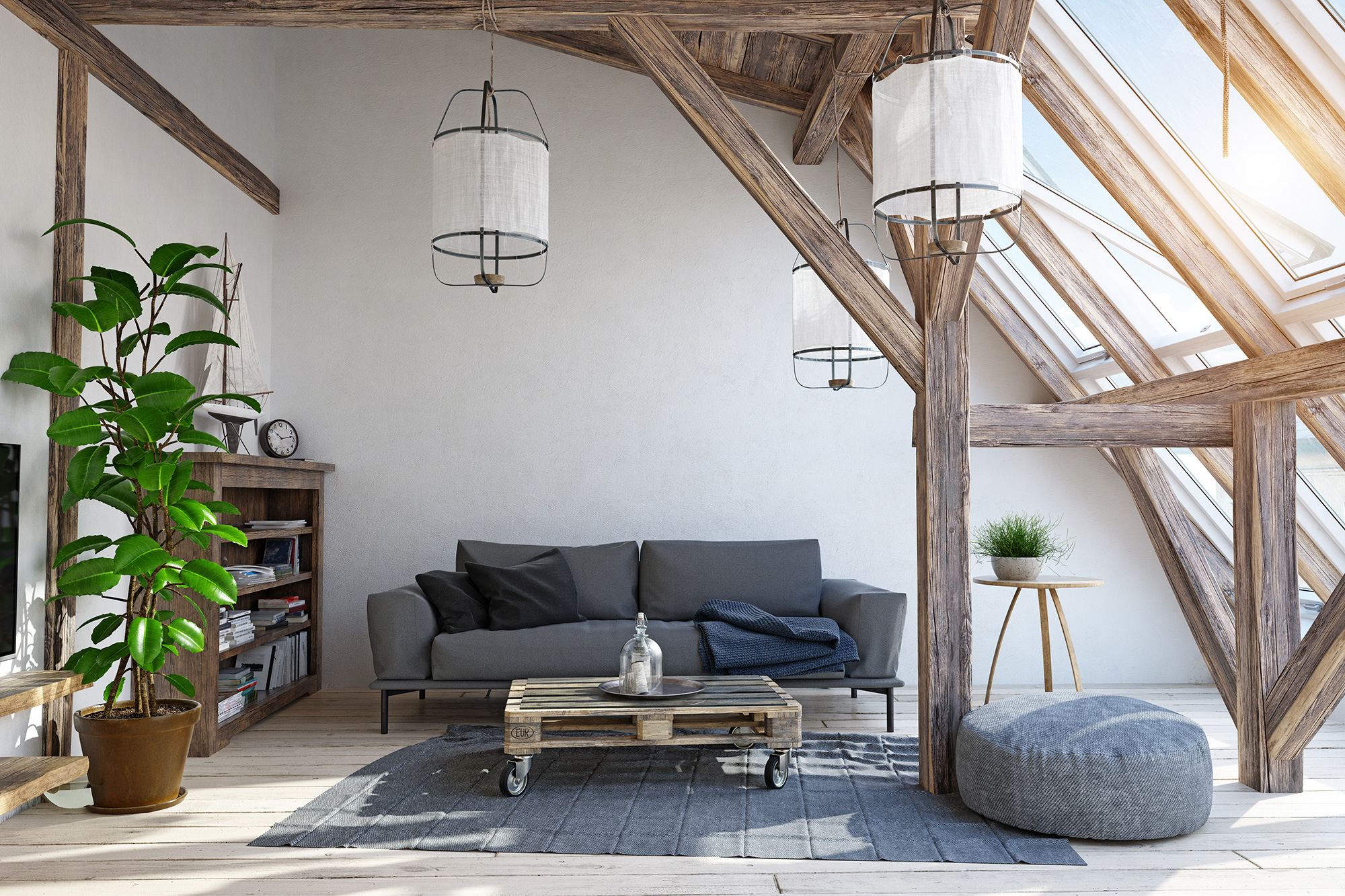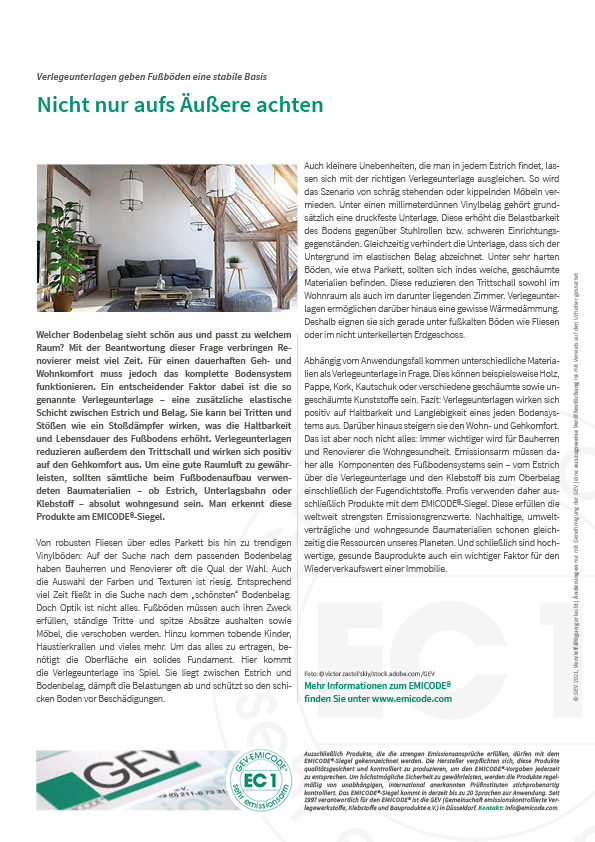Looks aren’t everything
Underlays provide a stable base for floor coverings
Which flooring looks nice and suits which room? Renovators usually spend a lot of time answering this question. However, if you want to ensure long-lasting walking and living comfort, the entire floor structure must be carefully planned and executed. A key factor is the use of an underlay – an additional elastic layer between screed and floor covering. It acts as a shock absorber and protects the floor from footsteps and other kinds of impact, thus increasing the durability and service life of the floor. Underlays also reduce impact sound and have a positive effect on the walking comfort. To ensure good indoor air quality, all building materials used in floor construction – whether screed, underlay or adhesive – should be absolutely healthy for living. These products can be recognized by the EMICODE® quality seal.
From robust tiles to elegant parquet and trendy vinyl flooring: housebuilders and renovators are often spoiled for choice when looking for the right flooring. There is also a huge range of colors and textures. Accordingly, a lot of time goes into the search for the “most beautiful” flooring. But looks aren’t everything. Floors also have to serve their purpose, which means they must withstand constant exposure to foot traffic, stiletto heels and carry the weight of heavy furniture that gets moved around. Add to that romping children, pet claws and many other stress factors. To endure all these stresses, the surface needs a solid foundation. This is where the underlay comes into play: it is installed between screed and flooring, cushions the stresses and thus protects the fancy floor from damage.
Even minor surface irregularities, which are found in every screed, can be leveled out with the right underlay. No more wobbly furniture in danger of tilting over. Since vinyl flooring is only a few millimeters thick, a pressure-resistant underlay should always be placed underneath. This increases the load-bearing capacity of the floor so that it can withstand chair castors and heavy furniture. At the same time, the underlay prevents the subfloor from showing through the elastic flooring. By contrast, soft, foamed materials should be used under hard floors such as parquet. They reduce impact sound both in the room itself and in the room below. In addition, underlays provide a certain degree of thermal insulation. Therefore, they are particularly suitable under cold floors such as tiles or for first-floor rooms without a cellar underneath.
Depending on the application, different materials can be used as underlays. These include wood, cardboard, cork, rubber or various foamed and non-foamed plastics. To sum it up, underlays have a positive effect on the durability and service life of any floor structure. In addition, they increase the walking and living comfort.
But that’s not all: Healthy living is becoming increasingly important for housebuilders and renovators. All components of the flooring system therefore need to be low-emission – from the screed to the underlay and adhesive to the top covering, including the joint sealants. Professional floorers only use products with the EMICODE® seal because they meet the world’s most stringent emission limits. Sustainable, environmentally compatible building materials that are healthy for our homes also help to save our planet’s resources. At the end of the day, high-quality, healthy building products are also an important factor in increasing the resale value of your property.

Photo: © victor zastol’skiy/stock.adobe.com /GEV
With a beautiful floor, the attic becomes an oasis of well-being – no matter whether you use light, natural parquet or trendy vinyl flooring. But appearance isn’t everything. For example, each floor covering needs a perfectly matched underlay. Among other things, it levels out uneven floors and ensures a stable base for the flooring. At the same time, the right underlay improves the floor’s thermal insulation properties. This pays off especially for floors that are cold underfoot.

Do You Have Questions?
If you have any questions on certain topics or want to contact us for another reason, please contact us by phone or email.
Phone: +49 (0)211 843 449 – 01
info@emicode.com
Share article on Social Media:
